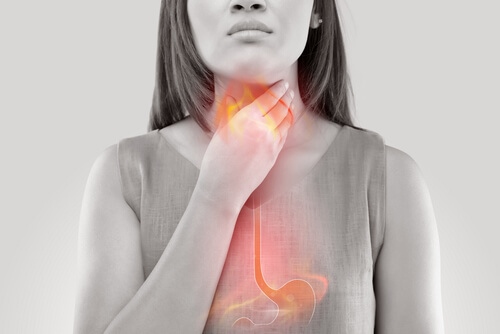Beyond Heartburn: Understanding Acidity and Its Underlying Causes

Acidity, also known as heartburn or gastroesophageal reflux disease (GERD), is a common digestive disorder characterized by a burning sensation in the chest or throat caused by the backflow of stomach acid into the esophagus. This backflow occurs when the lower esophageal sphincter (LES), the valve that separates the esophagus from the stomach, weakens or relaxes inappropriately.
Common Causes of Acidity
While acidity can be triggered by various factors, some of the most common causes include:
- Diet: Consuming foods that stimulate acid production, such as fatty, spicy, or acidic foods, can trigger acidity.
- Caffeine and Alcohol: Caffeine and alcohol can relax the LES, allowing stomach acid to reflux into the esophagus.
- Smoking: Smoking irritates the esophagus and weakens the LES, increasing the risk of acidity.
- Medications: Certain medications, such as aspirin, ibuprofen, and some blood pressure medications, can contribute to acidity.
- Pregnancy: Hormonal changes during pregnancy can weaken the LES, leading to increased acidity.
- Hiatal Hernia: A hiatal hernia is a condition where part of the stomach protrudes through the diaphragm, putting pressure on the LES and increasing the risk of acidity.
Why Antacids Are Not a Long-Term Solution
While antacids can provide quick relief from acidity symptoms, they are not a long-term solution. Overuse of antacids can lead to rebound acidity, where the stomach produces more acid to counteract the effects of the antacids. Additionally, antacids do not address the underlying causes of acidity, such as lifestyle factors or underlying medical conditions.
Dietary Management for Acidity
- Dietary management plays a crucial role in preventing and controlling acidity. Here are some dietary tips to help manage acidity:
- Avoid Trigger Foods: Identify and limit or avoid foods that typically trigger your acidity symptoms. Common triggers include fatty foods, spicy foods, acidic foods, caffeine, alcohol, and chocolate.
- Eat Smaller, More Frequent Meals: Instead of large, heavy meals, opt for smaller, more frequent meals throughout the day. This can help reduce the amount of acid produced in your stomach at once.
- Chew Thoroughly: Proper chewing breaks down food into smaller pieces, allowing for easier digestion and reducing the risk of acid reflux.
Maintain a Healthy Weight: Excess weight can put pressure on the stomach, increasing the likelihood of acid reflux. Maintaining a healthy weight can help reduce acidity symptoms.
Mindful Eating Habits
In addition to dietary changes, incorporating mindful eating practices can further help manage acidity:
Avoid Distractions: While eating, minimize distractions like television or smartphones. Focus on the taste, texture, and aroma of your food, allowing for slower and more mindful eating.
Eat Slowly: Take your time to chew and savor each bite. Avoid rushing through meals, as this can lead to overeating and increased acidity.
Stop When Full: Pay attention to your body’s hunger and fullness cues. Stop eating when you feel comfortably full, rather than overstuffing yourself.
Lifestyle Modifications for Acidity Management
Lifestyle adjustments can significantly impact acidity management:
Elevate Your Head During Sleep: Raise the head of your bed by 6-8 inches using blocks or an adjustable bed frame. This can prevent acid from refluxing into the esophagus while you sleep.
Avoid Late-Night Eating: Avoid eating heavy meals or snacks close to bedtime. Allow at least three hours for digestion before lying down.
Wear Loose-Fitting Clothes: Tight-fitting clothing around the waist can put pressure on the stomach and increase the risk of acid reflux. Opt for loose-fitting garments for comfort and reduced pressure.
Manage Stress Levels: Stress can exacerbate acidity symptoms. Practice stress-management techniques such as yoga, meditation, or deep breathing exercises to promote relaxation.
Regular Exercise: Regular physical activity can aid digestion and reduce acidity. Engage in moderate-intensity exercise for at least 30 minutes most days of the week.
Simple Remedies for Acidity Relief
Along with lifestyle changes, certain home remedies may provide additional relief from acidity:
Ginger: Ginger has anti-inflammatory properties that can help soothe the esophagus and reduce acidity symptoms. Consume ginger in its natural form, as ginger tea, or as a ginger ale.
Baking Soda: Baking soda can neutralize stomach acid, providing quick but temporary relief. Mix a teaspoon of baking soda in a glass of water and drink it slowly.
Doctor’s consultation:
While occasional acidity is common and can often be managed with lifestyle changes and home remedies, there are situations when seeking medical attention is crucial. Here are some signs that indicate the need to consult a healthcare professional:
-
Frequent or Severe Acidity: If acidity symptoms occur frequently, especially multiple times a week, or if the symptoms are severe and interfere with daily activities, it’s important to seek medical attention to determine the underlying cause and receive appropriate treatment.
-
Difficulty Swallowing: If you experience difficulty swallowing, a sensation of food getting stuck in your throat, or persistent heartburn, these could be signs of a more serious condition, such as esophageal strictures or ulcers, and require medical evaluation.
-
Chest Pain: If chest pain accompanies your acidity symptoms, especially if the pain radiates to the jaw, arm, or back, it’s crucial to seek immediate medical attention as this could indicate a heart-related issue.
-
Unexplained Weight Loss: If you experience unexplained weight loss, especially along with acidity symptoms, it could be a sign of an underlying medical condition, such as esophageal cancer, and requires prompt medical evaluation.
-
Blood in Stool or Vomit: If you notice blood in your stool or vomit, this is a serious sign that warrants immediate medical attention as it could indicate bleeding in the digestive system.
Symptoms that might indicate a more serious condition:
-
Difficulty swallowing (dysphagia): This can be a sign of esophageal narrowing, esophageal strictures, or even esophageal cancer.
-
Unexplained weight loss: This could indicate a more serious condition like esophageal cancer or peptic ulcer disease.
-
Blood in the stool (hematochezia) or blood in the vomit (hematemesis): These are signs of bleeding in the digestive tract, which can be caused by ulcers, gastritis, or even esophageal cancer.
-
Chest pain that worsens with exertion or radiates to the jaw, arm, or back: This could indicate a heart-related issue rather than acidity.
-
Persistent hoarseness or coughing: Chronic hoarseness or coughing can be caused by acid reflux irritating the vocal cords and airways.
Serious underlying conditions associated with acidity:
-
Gastroesophageal Reflux Disease (GERD): GERD is a chronic condition characterized by frequent backflow of stomach acid into the esophagus, leading to symptoms like heartburn, regurgitation, and dysphagia.
-
Esophageal Ulcers: Esophageal ulcers are open sores that develop in the lining of the esophagus, often caused by chronic acid reflux. They can cause severe pain, heartburn, and difficulty swallowing.
-
Barrett’s Esophagus: Barrett’s esophagus is a precancerous condition in which the cells lining the esophagus undergo changes due to chronic acid reflux. It increases the risk of developing esophageal cancer.
-
Esophageal Cancer: Esophageal cancer is a less common but serious condition that arises from uncontrolled growth of abnormal cells in the esophagus. It can cause difficulty swallowing, weight loss, and blood in the stool or vomit.
It’s crucial to consult a healthcare professional if you experience any of these symptoms or suspect an underlying condition. Early diagnosis and treatment can prevent complications and improve overall health outcomes.
Remember, early diagnosis and treatment of underlying medical conditions can prevent complications and improve overall health.
Experts Take on Acidity
Dr. Peter J. Kahrilas, MD, FACG, Director of the Digestive Diseases Clinic at Northwestern University Feinberg School of Medicine:
- “Acidity is a common problem that affects millions of people worldwide. It can be a symptom of a more serious underlying condition, so it’s important to see a doctor if you’re experiencing frequent or severe heartburn.”
Dr. Lawrence S. Friedman, MD, FACP, AGA Past President and Professor of Medicine at NYU Langone Medical Center:
- “There are many things you can do to manage acidity, such as avoiding trigger foods, eating smaller meals, and exercising regularly. If lifestyle changes aren’t enough, there are also a number of effective medications available.”
Dr. David A. Johnson, MD, FACG, AGA Institute Chair and Professor of Medicine at Eastern Virginia Medical School:
- “Acidity is a treatable condition, and with the right treatment, most people can live symptom-free. If you’re concerned about acidity, don’t hesitate to talk to your doctor.”
Dr. John E. Pandak, MD, FACG, AGA Governing Board Member and Professor of Medicine at the University of Pittsburgh:
- “Acidity can be a frustrating problem, but it’s important to remember that you’re not alone. There are millions of people who share your experience, and there are effective treatments available.”
Dr. Linda C. Smith, MD, FACG, AGA Past President and Professor of Medicine at the University of California, San Francisco:
- “Acidity is not just a symptom of heartburn. It can also be a sign of a more serious underlying condition, such as GERD. If you’re experiencing frequent or severe heartburn, it’s important to see a doctor to rule out any underlying conditions.”




